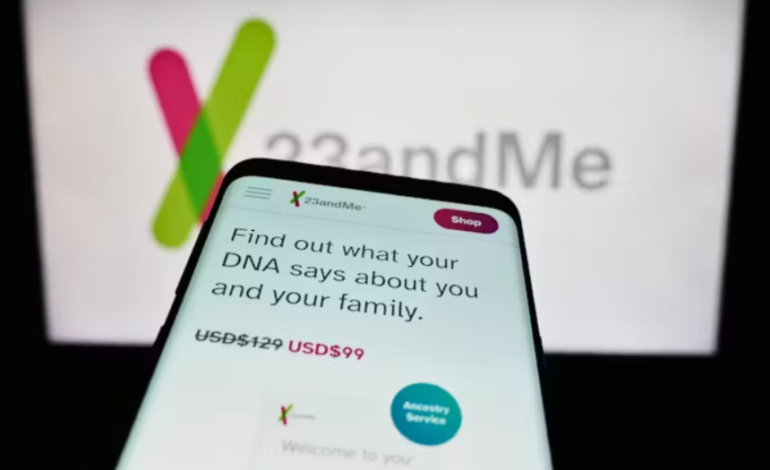Biotechnology giant 23andMe, known for its at-home DNA testing kits, is reportedly on the brink of bankruptcy, raising significant concerns about the future of millions of people’s genetic data, the Conversation reports,
The company, founded in 2006, has grown into one of the largest players in the direct-to-consumer genetic testing industry, with over 14 million users globally.
Since its launch, 23andMe has provided detailed DNA analysis through a simple process of collecting a saliva sample and sending it back for testing. Customers use the service to gain insights into their ancestry, health, and even personal traits. However, as the company faces potential financial collapse, questions are emerging about the security of the vast troves of sensitive genetic information it holds.
23andMe’s downfall has been swift. After going public in 2021 and seeing a surge in its stock price, the company’s value has since plummeted by more than 97%. A significant data breach in 2023 compromised the information of nearly seven million users, followed by a $30 million class-action settlement. Recently, the company saw the resignation of seven independent directors, fueling speculation about its future as it edges closer to bankruptcy.
With the company’s financial stability in question, concerns have intensified over what will happen to the genetic data it has accumulated. CEO Anne Wojcicki has reassured customers that their privacy will be maintained according to current policies, which include not sharing DNA data without consent. However, as per 23andMe’s terms of service, if the company is sold or restructured, there is a possibility that genetic information could be “accessed, sold, or transferred” as part of the deal.
Amid the uncertainty, some customers are considering steps to protect their genetic data. Experts note that while the risk of misuse may not be higher now than before, individuals should be aware of their options. One approach is deleting accounts to prevent future data usage, though data already used in research may not be retrievable. Additionally, 23andMe may retain certain personal information to comply with legal obligations, even after account deletion.
Given the potential sale of the company, experts advise caution when signing up for genetic testing services. Customers should carefully review privacy policies, including how data will be used, who can access it, and how long it will be stored.
The direct-to-consumer DNA testing industry has attracted millions, with companies like 23andMe, AncestryDNA, and MyHeritage holding genetic data for nearly 50 million people worldwide. While genetic testing has provided valuable insights, it comes with risks, particularly in terms of privacy and data security. As 23andMe’s future remains uncertain, consumers may want to reconsider their participation in these services or, at the very least, review the legal conditions attached.
For those looking to protect their genetic data, experts recommend understanding the company’s data usage policies and considering the potential long-term consequences before purchasing a DNA test.









